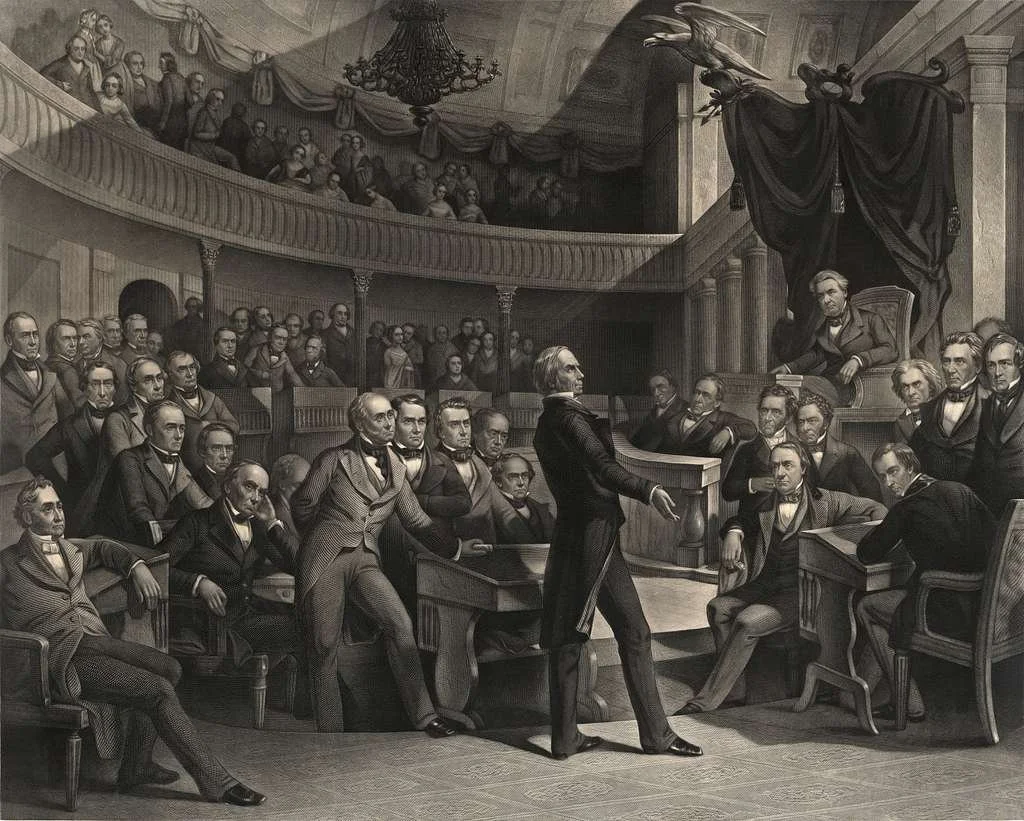Words held our nation together; where are the words for now
Engraving of Henry Clay. Image: Public domain.
I have always believed in the power of words. As a wordsmith myself, I know that words can bind together communities, lift up spirits, and, at times, hold entire nations from crumbling apart.
Our country once thrived on the words of oratory giants. The republic survived its deepest wounds not only because of policies and battles, but because of the voices that gave people courage to endure them.
There was a time when the American experiment was held together by orators whose words resonated beyond the walls of Congress or the White House.
Daniel Webster could thunder about the Union as if it were a sacred covenant.
John Calhoun, though I oppose his ideas, commanded a presence that forced the nation to wrestle with its deepest contradictions.
Henry Clay, the Great Compromiser, wove words that stitched together a divided people for just a little longer, postponing collapse.
Abraham Lincoln spoke in sentences that still echo across time. He distilled the grief of a nation into the Gettysburg Address, reminding us that a government “of the people, by the people, for the people” must not perish.
Franklin Roosevelt steadied a trembling country with his fireside chats, transforming fear into resolve with nothing more than his voice carried over the radio.
Words once mattered so much that they could calm panic, ignite reform, or summon courage from despair.
I look around today and cannot find their heirs.
There are no Websters.
No Clays.
No Lincolns or Roosevelts.
Our leaders speak, but their words seem hollow, crafted for sound bites and headlines rather than for history.
They speak to score points, not to stir souls.
Instead of rhetoric that strengthens the ties of our union, we are bombarded with slogans, tweets, and insults that tear at its seams.
It feels as if the art of oratory has been lost, buried under the noise of the digital age.
Words once held our country together, but now they seem to scatter us in every direction.
We live in a time when the loudest voice drowns out the most thoughtful, when the sharpest insult garners more attention than the most careful reflection.
And yet, I still believe words can heal us.
I still believe they can shape the future, if only we learn again to speak with conviction, clarity, and compassion. If only our leaders would see language not as a weapon to divide but as a thread to weave us back together.
Perhaps we do not need another Webster, or Clay, or Lincoln. Perhaps what we need is for each of us to remember that words are not cheap. Words are what built this nation, what preserved it through fire, and what can still call it back from the edge.

